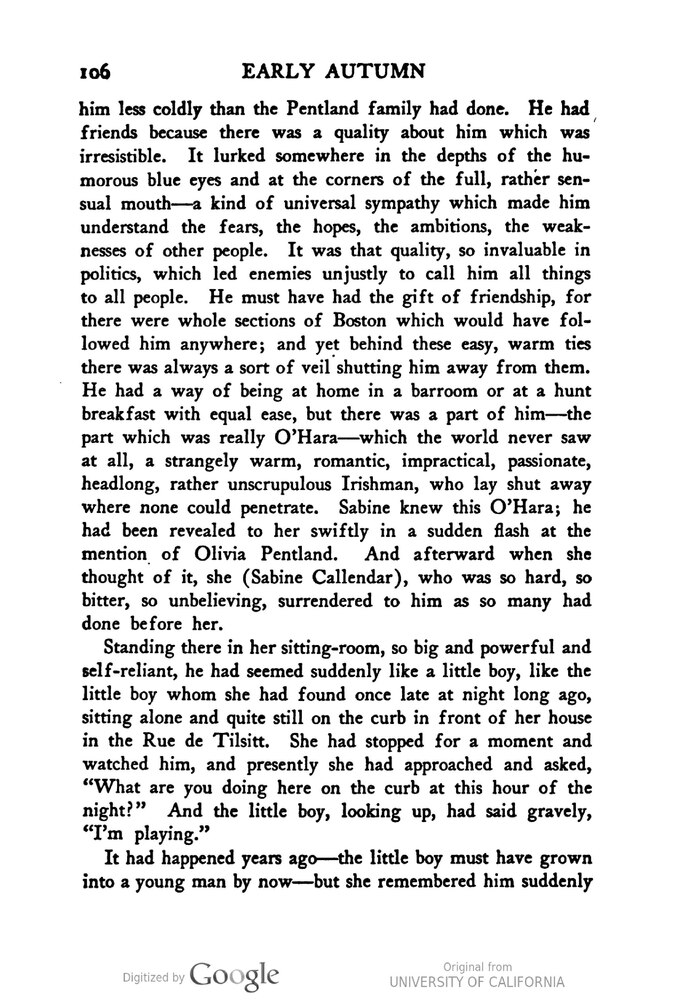him less coldly than the Pentland family had done. He had friends because there was a quality about him which was irresistible. It lurked somewhere in the depths of the humorous blue eyes and at the corners of the full, rather sensual mouth—a kind of universal sympathy which made him understand the fears, the hopes, the ambitions, the weaknesses of other people. It was that quality, so invaluable in politics, which led enemies unjustly to call him all things to all people. He must have had the gift of friendship, for there were whole sections of Boston which would have followed him anywhere; and yet behind these easy, warm ties there was always a sort of veil shutting him away from them. He had a way of being at home in a barroom or at a hunt breakfast with equal ease, but there was a part of him—the part which was really O'Hara—which the world never saw at all, a strangely warm, romantic, impractical, passionate, headlong, rather unscrupulous Irishman, who lay shut away where none could penetrate. Sabine knew this O'Hara; he had been revealed to her swiftly in a sudden flash at the mention of Olivia Pentland. And afterward when she thought of it, she (Sabine Callendar), who was so hard, so bitter, so unbelieving, surrendered to him as so many had done before her.
Standing there in her sitting-room, so big and powerful and self-reliant, he had seemed suddenly like a little boy, like the little boy whom she had found once late at night long ago, sitting alone and quite still on the curb in front of her house in the Rue de Tilsitt. She had stopped for a moment and watched him, and presently she had approached and asked, "What are you doing here on the curb at this hour of the night?" And the little boy, looking up, had said gravely, "I'm playing."
It had happened years ago—the little boy must have grown into a young man by now—but she remembered him suddenly
